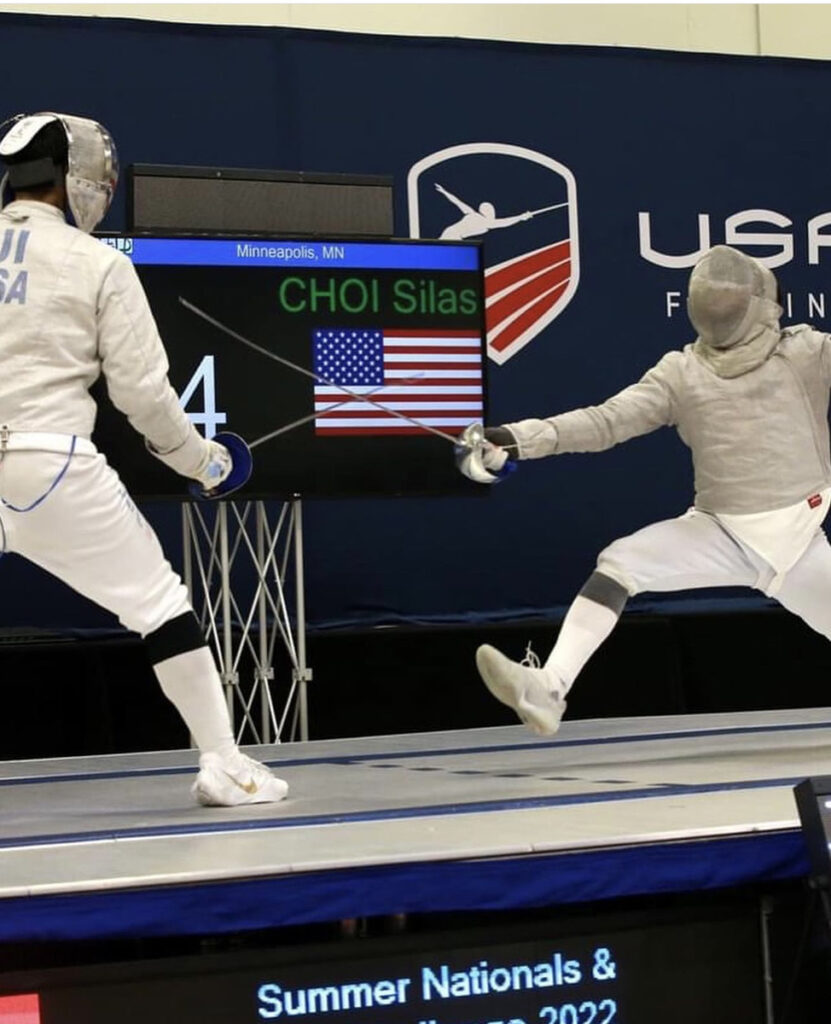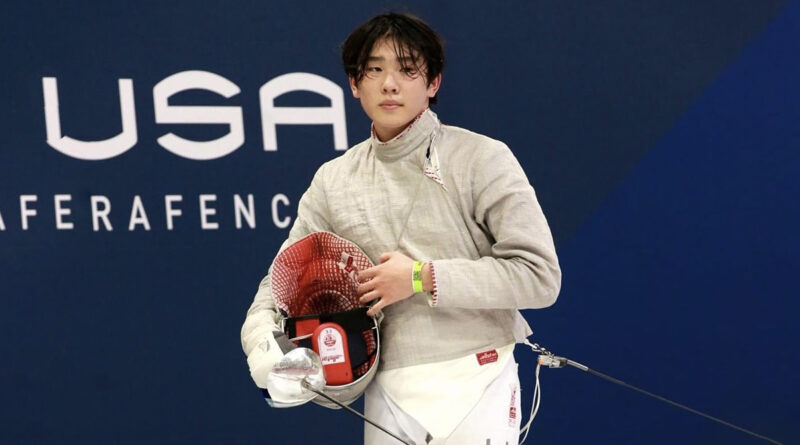Park Cities Teen Sharpens Fencing Skills on World Stage
Choi ranked among top 20 nationally in age group in growing niche sport
While millions watched swimmers, gymnasts, and runners at the 2016 Rio Olympics, 9-year-old Silas Choi became fixated on fencing.
Even if he wasn’t sure of the complex rules or the specific tactics, the Park Cities youngster became inspired by the breakthrough for the South Korean team, given his family heritage.
More than six years later, Choi began competing on the international stage and harboring Olympic ambitions in the niche sport.
In November, the young swordsman represented Team USA on the Junior World Cup circuit in the cadet saber class in Bulgaria and Germany. He earned a team bronze medal.
“It’s fun to travel to all of these places,” Choi said. “If you go to lots of national and international tournaments, you get experience and get more motivated in general.”

Choi participates in saber fencing, which differs from the other two disciplines — epee and foil — because the weapon generally prompts a faster pace and more attacking style.
“There’s so many different rules and so many different styles,” he said. “I like that it’s the fastest of the three weapons. I feel it’s also the most exciting.”
He competes for Globus Fencing Academy in Addison under the tutelage of Lee Hyo-kun, a former Olympian and Olympic coach for South Korea.
After earning a silver medal at the USA Fencing Summer Nationals in July in Minneapolis, Choi became one of the country’s top 20 cadet saber fencers, enabling him to qualify for World Cup events. He typically trains for about 15 hours per week and travels for competitions at least once a month.
“We’re really proud of Silas for keeping up fencing with his schoolwork and playing the cello,” said his mother, Claudia. “He just picked it up really quickly and has run with it.”
Choi is a sophomore at Cistercian Preparatory School in Irving, which had fencing incorporated into its physical education curriculum as recently as the 1960s, tracing back to the Hungarian monks who founded the school.
In January, he will travel to World Cup events in France and Romania. He hopes to compete at the collegiate level, with an eye toward Olympic qualification.
While the sport has traditionally been more popular domestically on both coasts, Texas has recently seen a surge at the youth level, which Choi embraces.
“It’s very fast-paced, and there’s lots of spontaneous reactions involved,” Choi said. “It’s a lot more complicated than it seems. You don’t really know what you’re watching until you try it.”





